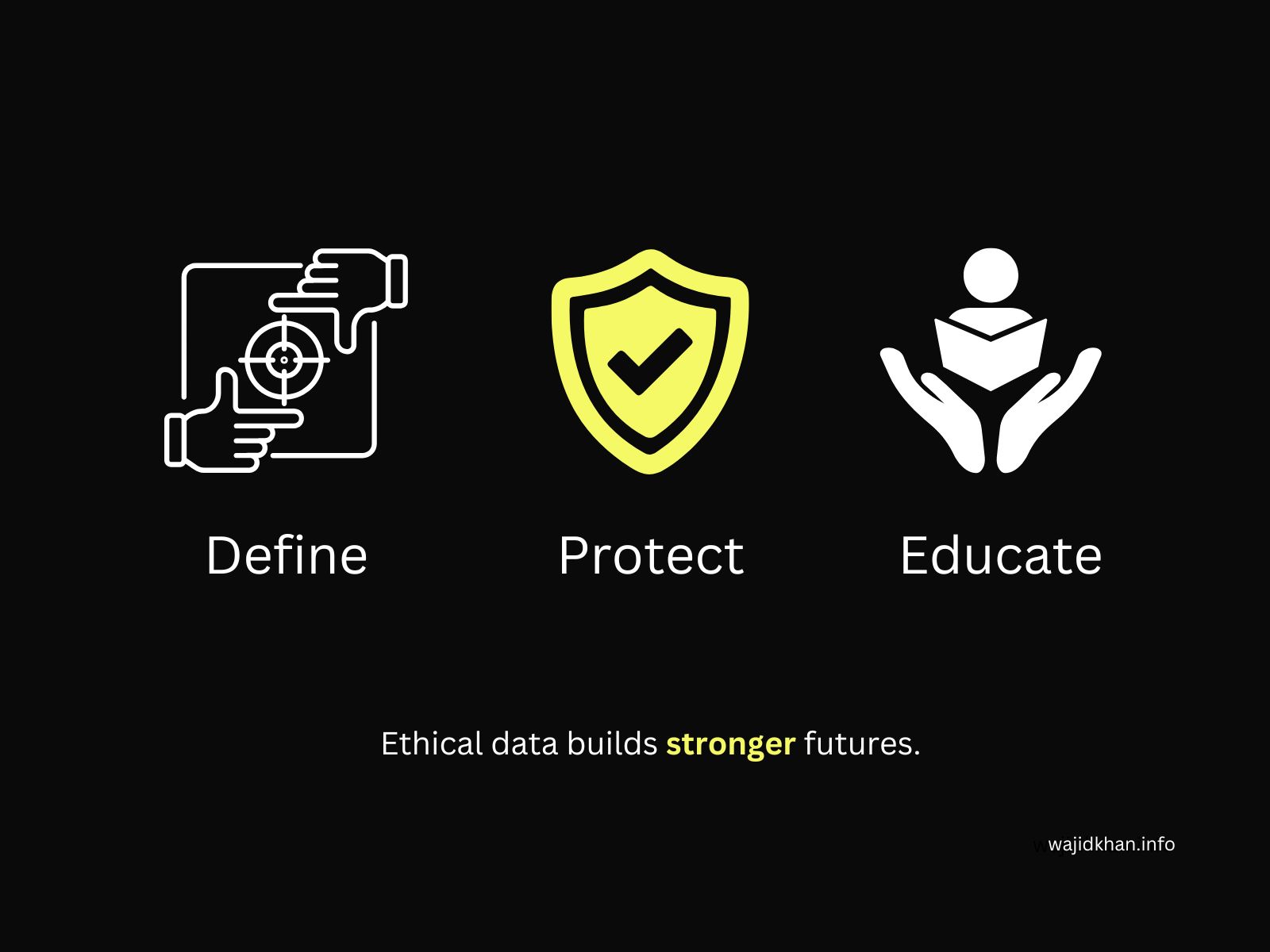Data and AI Ethics
Data and AI are revolutionising industries, reshaping public and private sectors alike. Yet, the transformative power of these technologies comes with profound ethical challenges.
How do we build trust and accountability in systems that cross geographical, cultural, and regulatory boundaries? Ethics in data and AI is not just a responsibility—it’s a necessity for sustainable innovation.

1. Define
Create robust ethical frameworks tailored to your organisation’s needs. Identify the intent, impact, and risks of data-driven initiatives. Align these with regulatory requirements like GDPR and promote transparency in how data is used.
2. Protect
Safeguard sensitive data with comprehensive security protocols and ensure compliance with global and regional standards. Proactively identify and mitigate biases in AI models to prevent unintended consequences. Ethical AI is about protecting people and fostering trust.
3. Educate
Embed ethics in your organisational culture. Train teams to understand ethical principles, address potential challenges, and make decisions that align with both corporate values and societal good. Ethical literacy is the foundation of responsible innovation.
Use Cases
Patient Data Security: Ensure robust encryption and privacy measures for sensitive health records. A national health system deployed AI to predict patient care needs while maintaining strict compliance with privacy laws.
Smart Transportation: Optimise traffic flow with AI systems that prioritise equity. A metropolitan city used data analytics to prevent congestion while ensuring underserved areas had equal access to public transport.
Predictive Policing: Apply data insights ethically in public safety without reinforcing systemic biases. A police department reviewed its predictive AI model, ensuring it adhered to fairness guidelines and did not disproportionately target minority groups.
Retail Analytics: Leverage purchasing data to improve customer experiences while respecting privacy. A leading retailer adopted anonymisation techniques to personalise offers without compromising customer trust.
Inclusive Education: Develop AI-driven platforms that reduce learning gaps. A global edtech company ensured its recommendation algorithms promoted inclusivity by prioritising diverse content.
Energy Consumption Dashboards: Use real-time data visualisation to drive energy efficiency. A utility provider introduced privacy-first dashboards, empowering users to reduce energy use without exposing personal data.
Content Moderation: Implement fair and transparent AI systems for social media safety. A platform successfully deployed AI to detect harmful content, balancing community standards with freedom of expression.
Fair Lending Practices: Use AI to assess credit risk transparently. A fintech startup implemented bias-detection tools to ensure fair lending decisions, boosting customer confidence.
Urban Planning: Integrate data insights into city development while prioritising community needs. A smart city initiative used ethical AI to allocate resources equitably, enhancing quality of life for residents.
Entertainment Personalisation: Design AI models that offer tailored recommendations responsibly. A streaming service balanced user data insights with ethical considerations to prevent content addiction and promote well-being.
Ethics is the compass guiding data and AI toward a better future. Let’s ensure innovation serves humanity without compromise.
